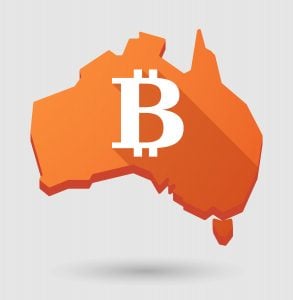In recent months, the Australian government has sought to amend its bitcoin regulations – which were previously notoriously unfavorable to businesses and individuals seeking to use and adopt cryptocurrency. The Australian cryptocurrency industries have since shown signs of significant growth, with many industry insiders attributing the improving investor confidence to amendments made to federal legislation pertaining to bitcoin in Australia.
Australian Bitcoin Adoption Is Increasing

Australia has seen an increase in bitcoin and cryptocurrency adoption throughout 2017, with many attributing a recent increase in new investors and adopters to changing regulatory landscape regarding cryptocurrencies in Australia.
Adrian Prezelozny, the chief executive of Sydney based bitcoin exchange, Independent Reserve, claims that his exchange is “getting between 100 and 200 new users every day.” Prezelozny told Australian media that the company is now handling up to $4 million AUD ($3.16 million USD) daily.
In July, Australia ended its notorious double taxation regime for bitcoin, ushering in new legislation recognizing bitcoin as a legitimate means of payment. The following month, the Australian government enacted regulations governing the operation of cryptocurrency exchanges, as a part of reforms designed to “strengthen the Anti-Money Laundering and Counter-Terrorism Financing Act and increase the powers of the Australian Transactions and Reporting Analysis Centre.”
Prezelozny attributes the expanding Australian bitcoin userbase to improvements in the nation’s regulatory apparatus pertaining to cryptocurrencies. “The amount of regulatory work in Australia has people feeling much more confident in bitcoin so we’re seeing all different kinds of people investing. This is a global trend too… These kinds of regulations give new investors confidence.”
Australia Recently Hosted Its First Initial Coin Offering (ICO)

Powerledger, a company using the blockchain to facilitate the trading of solar power, raised $34 million AUD ($26.9 million USD) at the start of the month. The ICO generated investment from more than 15,000 participants, taking in approximately $17 AUD million in fiat currency, $10.7 million AUD in ethereum, $6 million AUD in bitcoin, and $400,000 AUD in litecoin.
At the end of September, the Australian Securities and Investments Commission (ASIC) published guidelines for companies seeking to conduct ICOs in Australia. The guidelines sought to clarify under what circumstances ICOs would fall within the regulatory jurisdiction of the Corporations Act. ASIC concluded that depending upon the particularities of an ICO, initial coin offerings fall under the regulatory requirement of a managed investment scheme, an offer of shares, or an offer of a derivative.
At the start of September, Australia’s second largest independent deployer of ATMs, Stargroup, announced that it had signed a joint venture agreement with blockchain payment services provider, DigitalX, to convert their existing ATMs into Bitcoin ATMs. The agreement will see the conversion of over 500 ATMs owned by Stargroup, and over 2,400 terminals managed via the company’s subsidiary, Starlink. In August, news.Bitcoin.com published an article looking at Wooranna Primary School’s ‘Blockchain Program’ – which offers young Australians a wide variety of opportunities to experience and explore cryptocurrency and distributed ledger technology.


















No comments